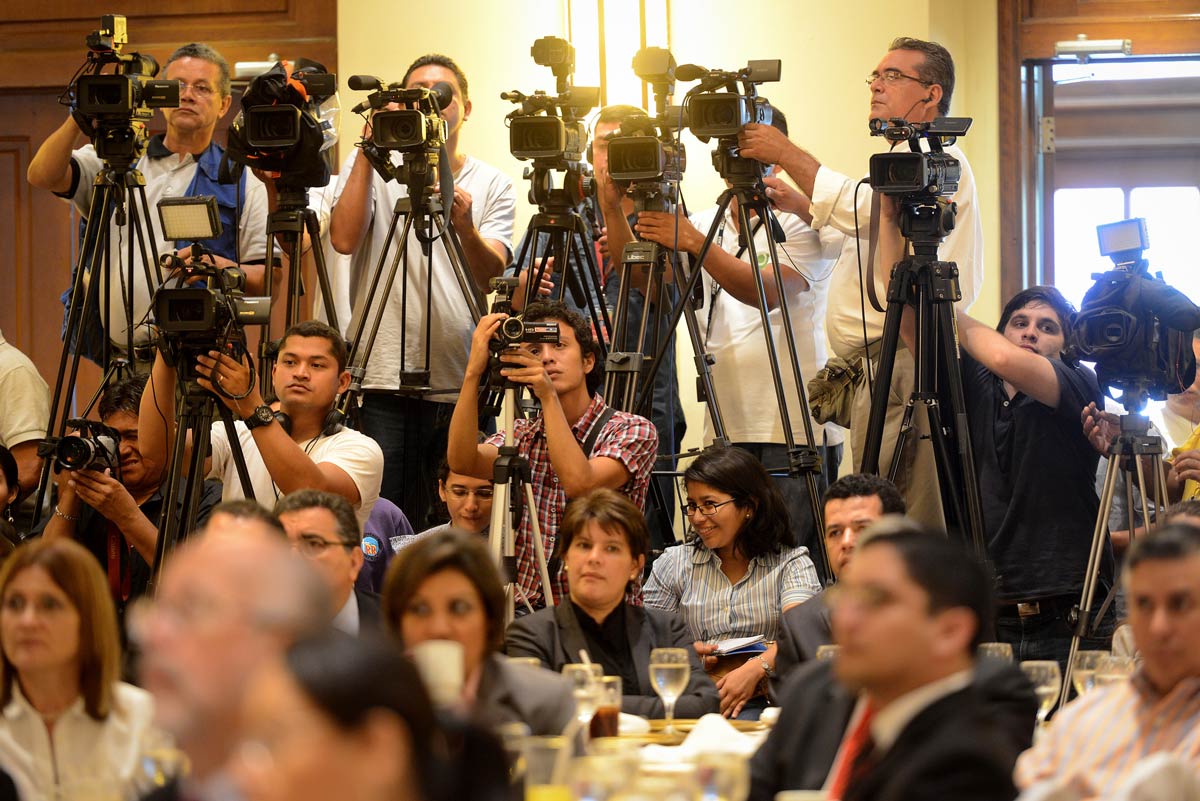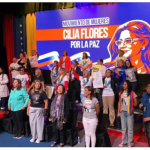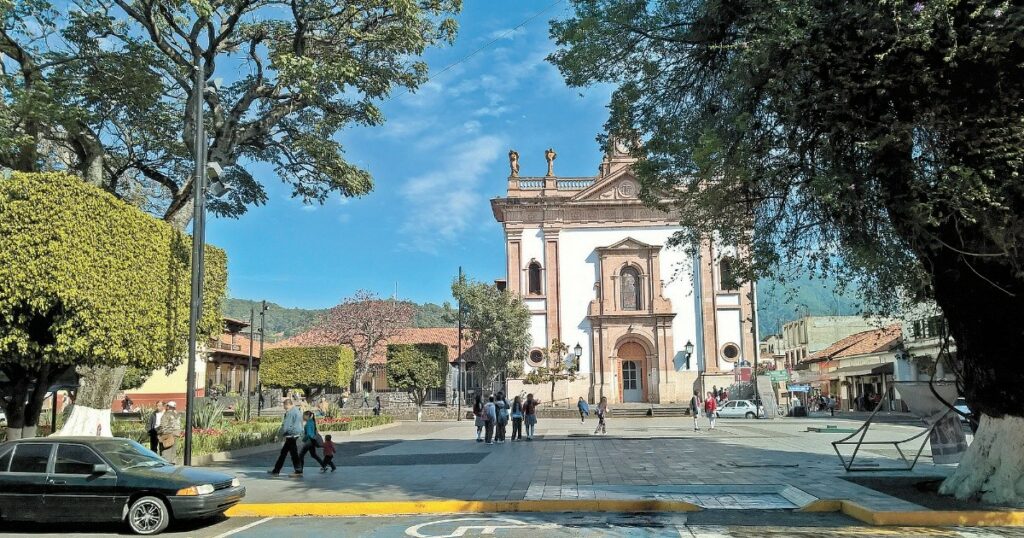Since the loss of freedom, nationality, property and life itself, independent journalism in Nicaragua has suffered in the war that the dictatorship of Daniel Ortega and Rosario Murillo has unleashed against them since 2018.
The fierce repression of the Sandinista dictatorship against journalists in Nicaragua, for five consecutive years, finds communicators this March 1, 2023, National Journalist’s Day, in the worst conditions of the year, ever remembered.
The journalistic union reported more than 700 attacks in 2022, according to an annual report by the organization Voces del Sur. This note recounts the ten main losses that journalism has suffered in Nicaragua and reveals the high cost paid by men and women in their mission to report under a dictatorship that wants to silence them no matter what.
Against life and liberty
On April 21, 2018, journalist Ángel Gahona lost his life while covering social protests in his city of Bluefields, in the Southern Caribbean of Nicaragua. Although the family and witnesses point to the police as the main suspect in the crime, the regime blamed two young protesters whom it convicted without evidence. And although he later cleared them of guilt in a 2019 amnesty, Gahona’s crime went unpunished as police responsibility in the tragic event was not investigated.
hUntil January 2023, in Nicaragua there were 14 journalists imprisoned and sentenced by the judges of the regime, for their informative work. More than 100 more are in the process of criminal investigation in Nicaragua since May 2021. Since 2018, the dictatorship has persecuted, detained, accused, and sentenced 27 journalists, of whom 14 were convicted in 2022 and exiled in February this year.
Declared stateless and confiscated
The Ortega and Murillo dictatorship exiled and removed the legal nationality of 316 Nicaraguans, of whom at least 26 are independent journalists, media directors and workers in newspaper companies. Through shady judicial processes, without the right to defense, without evidence and without any semblance of legality, judges at the service of the regime declared 222 political prisoners “traitors to the homeland” first and then 94 opposition people, including journalists and social communicators.
Together with the loss of Nicaraguan nationality, the Sandinista dictatorship ordered the confiscation in favor of the State of the assets of the more than 26 journalists, media directors and workers of journalistic companies. The seizure and assault of the private properties of journalists began with the police assault on the house of journalist Patricia Orozco in December 2022 and with the assault and confiscation of the building where journalist Sofía Montenegro had her apartment; both were charged and sentenced for “treason against the homeland.”
Related news: Unique journalists in exile live in precarious conditions, reveals PCIN report
The constant aggression against the media and journalists, threats of imprisonment, criminal and legal prosecution, siege, harassment and lack of respect for the civil liberties of journalists, ordered and executed by public officials, security forces and paramilitaries, Since 2018 to date, it has led 178 journalists and communicators into exile and the forced displacement and concealment of residence of another 80 more, according to data from the organizations Voces del Sur, Colectivo de Derechos Humanos Nunca Más and the union organization Independent Journalists and Communicators of Nicaragua (PCIN).
sentenced to unemployment
Although there is no specific data on unemployment in the journalistic union as a consequence of the Sandinista repression against journalists and the media in Nicaragua, it is evident that the union has lost hundreds of jobs due to the closure and confiscation of media outlets since 2018.
In addition, journalists and the media have seen their access to state advertising closed since the rise of the dictatorship in 2007; closure of access to international funds with the Foreign Agents Law in 2020 and the closure of more than 3,000 non-governmental organizations between 2022 and 2023.
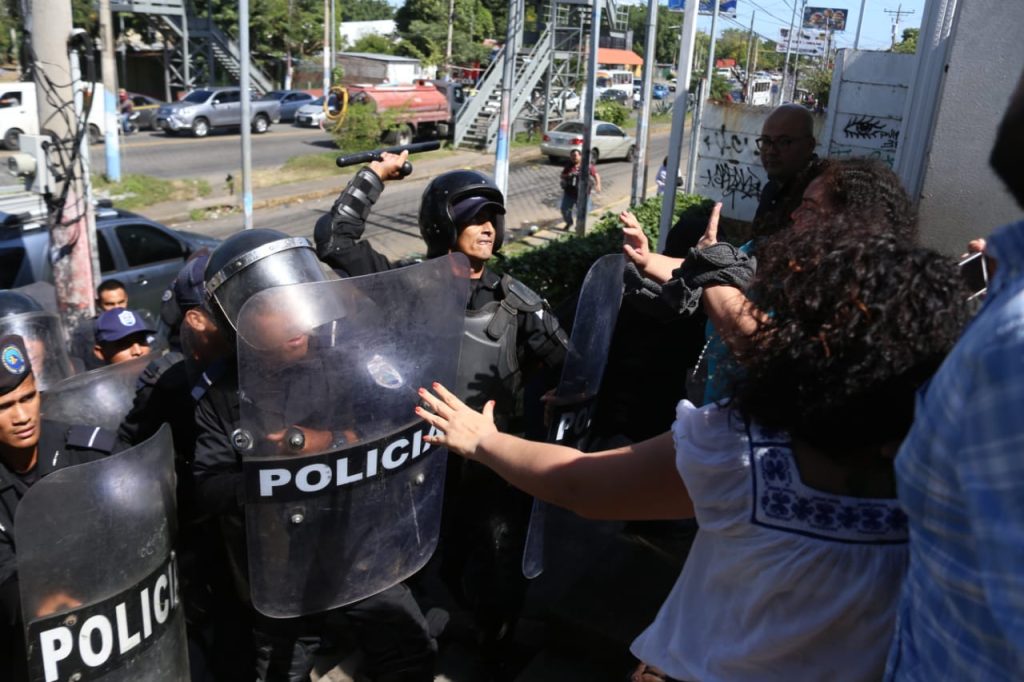
Nicaraguan journalists have lost everything from small radio or television spots to entire newspapers and channels. The assault and confiscation of the media began in December 2018 with the police assault on the 100% Noticias and Confidencial Channel; It continued with the assault on the facilities of La Prensa and Esta Semana in 2021 and the seizure of the headquarters of Trinchera de la Noticia in 2022.
Since 2018, according to PCIN data in September 2022, at least 54 media outlets and information spaces had been closed in Nicaragua as a result of the Sandinista repression. In August of last year alone, Telcor, the state censorship agency, shut down 17 media outlets throughout the country, including Radio Darío in León and Catholic stations.
Forced to be anonymous and clandestine
Professional journalism worldwide is characterized by the journalist’s signature as the author of informative notes, investigations, in-depth reports, long-term chronicles and all kinds of complaints about human rights violations. This gives credibility to the media and security to the audience regarding the author of the journalistic works, but in Nicaragua, for security reasons, the authors no longer sign their works in the media.
This measure, which deprives journalists of the intellectual right to their works, has been taken for security since the State under Sandinista control prosecuted more than 100 journalists in 2021, accusing them of money laundering and issuing false news for having received support from civil society organizations such as the Violeta Barrios de Chamorro Foundation and other non-governmental organizations with a long presence in the country.
Freedom of expression, kidnapped
The journalistic union has seen its constitutional and universal rights to Freedom of Expression and Freedom of the Press violated as never before since 2018. The regime accused and sentenced people who issued critical statements against the Sandinista dictatorship in independent media, including journalists such as Miguel Mendoza and the journalism student Samanta Jirón, who expressed their opinion on social networks about the situation in the country.
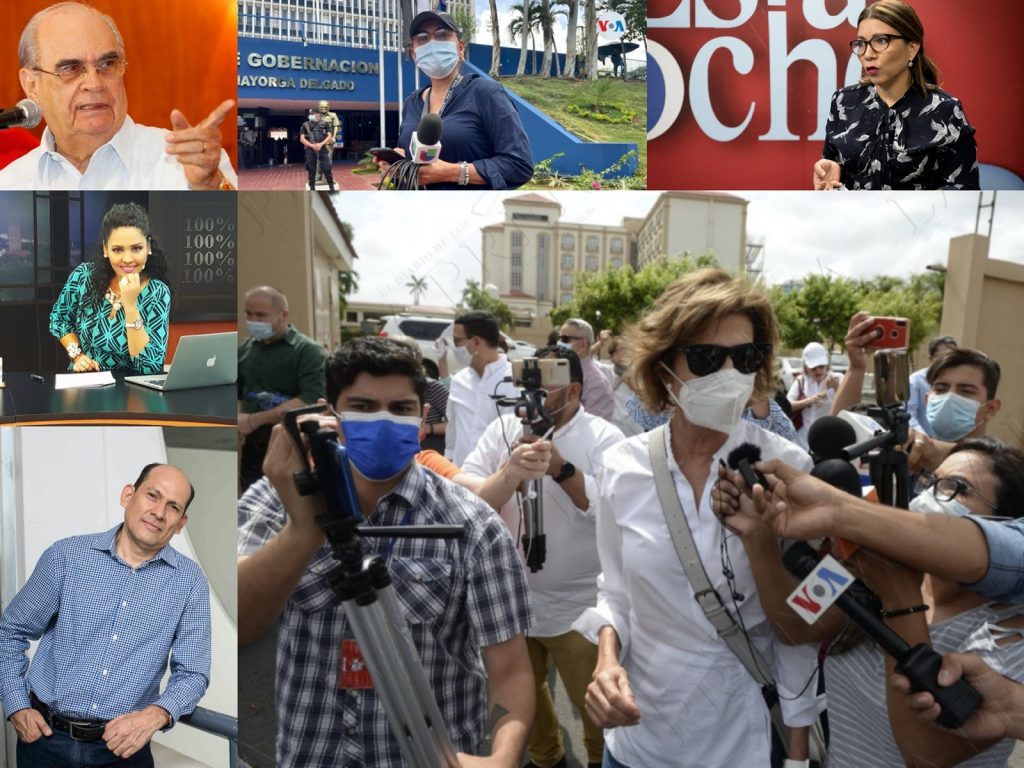
Regarding Freedom of the Press, with the confiscation of entire media outlets and repressive laws such as the Cybercrime Law, through which more than 17 people were convicted in 2022, the regime “pulverized” the right to freedom of the press in the country.
The loss of the right to public informationis the oldest of the losses suffered by the Nicaraguan journalistic union, since the dictatorship denied access to information to independent journalists since its rise to power in 2007.
That same year, the Ortega-Murillo regime issued a communication strategy that excluded the independent media from access to public information and allocated this resource exclusively to its employees of the official media, characterized by their radical subordination, a militant activism at odds with the natural critical exercise of journalism and seasoned by the lack of news selection criteria that shamefully corrodes the official press.
Since then, the doors of public institutions have been closed to the media and public information has been centralized in the official speeches of, first, Rosario Murillo, secondly her children and their media, and thirdly by Sandinista journalists with their own media. that act as sounding boards; fourthly, by salaried spokesmen such as Adolfo Pastrán and Moisés Absalón Pastora and fifthly, by the armies of digital trolls that broadcast propaganda on social networks.
By United Voices
